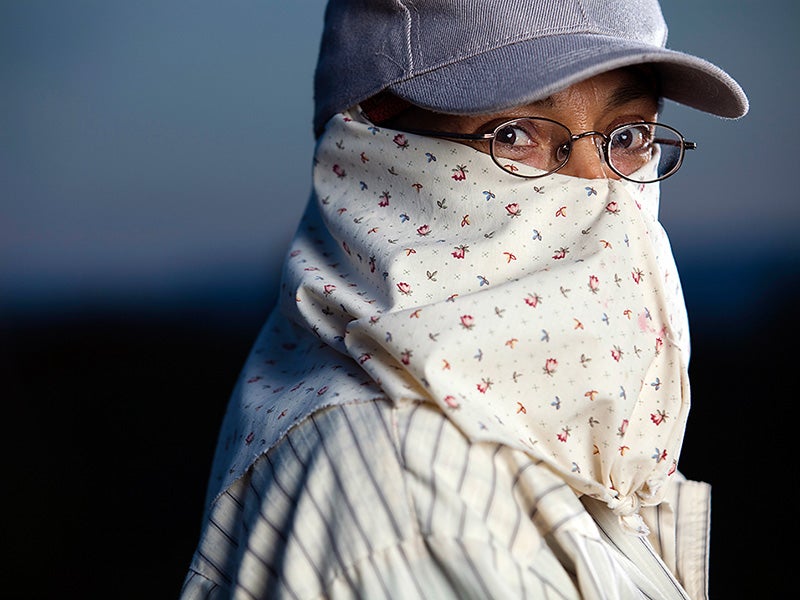Protecting Yourself When the Workplace Won’t: Maria’s Story From the Fields
Without adequate safety standards, farmworkers shield themselves from poisonous surroundings.

This page was published 11 years ago. Find the latest on Earthjustice’s work.
This is the fourth blog post in a weekly series of personal stories from farm and agricultural workers, illustrating the need for stronger worker and safety protections against pesticide exposure. To get beyond the statistics of 10,000–20,000 pesticide poisonings on farms a year in this country, we go to the frontlines, beginning in California.
While working in a nearby field, I witnessed a plane swooping down and spraying pesticides over a field filled with farmworkers. When those workers complained, they were sent home to take care of themselves, instead of being treated by a doctor. Not all bosses are brutal but the plane should have never sprayed a working field like that.
I’ve never been directly sprayed by pesticides but I’ve seen it happen to others plenty of times. I’ve seen pesticides drift onto me and people around me, and I think rules need to be improved regarding spraying on nearby fields.
Sometimes, the employer knows the rules but not the employee. I would never work without a mask but I see people who do. I think some workers don’t protect themselves properly because of lack of training. When you move a lot from field to field, from boss to boss, training isn’t a priority. Some ranches or companies are better than others at protecting their workers. In my 24 years of working in the fields, I have seen working conditions improve but they can always get better.
Where I work right now, they respect the farmworkers, our families and the need for flexibility when you have five children. My goal is to retire from the fields and work somewhere else but my options are limited right now. I’d like to learn more English and go back to school to improve my chances of getting a better job.
Earthjustice will be sharing farmworker stories until the Environmental Protection Agency finalizes an updated Worker Protection Standard (WPS). To tell Administrator Gina McCarthy that agricultural workers deserve the same workplace safety standards as every other industry, take action.
Maria’s story is one of a series that highlight the changes that need to be made to the WPS.
Established in 1989, Earthjustice's Policy & Legislation team works with champions in Congress to craft legislation that supports and extends our legal gains.